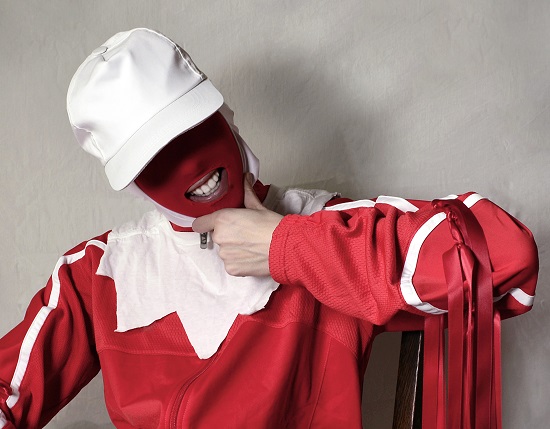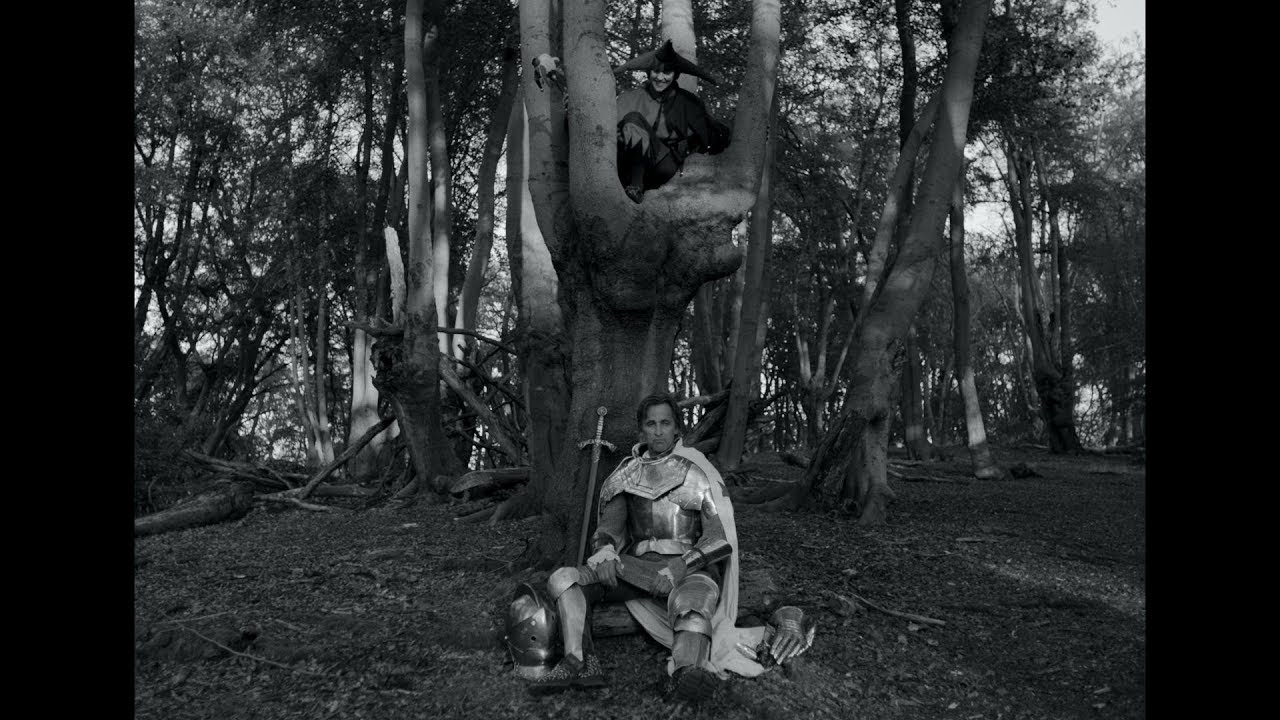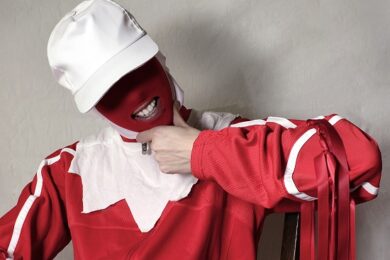Last Month, Gazelle Twin released her exceptional new record Pastoral, a commanding examination on England’s grisly past and disquieting present. Above you can see the powerful new music video for the latest single ‘Glory’, out now.
As Gazelle Twin’s Elizabeth Bernholz explains, “I wrote ‘Glory’, thinking a lot about the plundered and violent heritage of Britain’s Religious institutions, and how our wrung-out National traditions / celebrations still attempt to glorify it.”
The video features actor Crispian Belfrage who portrays a Knight in the throes of existential quandary. Frequent collaborator, and director of ‘Glory’, Tash Tung shares: “I wanted the Knight to transcend time and space to show us that here, in this modern day, we walk the same land, we share the same history. Drawing influence from religious symbolism, Bergman, Noé and the National Gallery, the imagery is brought to life by Elizabeth’s trust in me to reveal her face for the first time.”
Forthcoming Gazelle Twin performances in London include: Somerset House on 16 November and drone choir collaboration with NYX at The Pickle Factory on 9 December.
To find out more, tQ caught up with Bernholz for a quick chat about the new video:
tQ: What was the reasoning behind choosing Epping Forest as the shooting location for the video?
Elizabeth Bernholz, Gazelle Twin: Tash chose the location as the perfect solution for her London-based crew, but it turned out to be perfect for the whole concept since it has such an expanse of strange landscapes, with little ponds, enormous clusters of very ancient trees, sunlit glades and archetypal forest clearings – just the setting it needed.
tQ: Is there a significance between shifting the tone of the video from monochrome to full colour toward the end?
EB: This was all Tash’s concept. We talked about "medieval neon" as a sort of overarching feel. It starts off as a straight, period setting in black and white, with somewhat traditional film-tropes, moving into the present, urban streets at night, blending the centuries together, just as the English landscape so often does, reminding us of its past all the time.
tQ: How does the film function as a further expansion upon the themes explored in Pastoral?
EB: ‘Glory’ is probably the most cinematic of all the songs on Pastoral so it seemed to have the potential for a more narrative visual accompaniment. We wanted to shift focus from the frantic, mad energy, and creepy costumes (although that still remains part of its palette) but this time it’s more to do with representing those figures in history that linger on in our present day, especially the symbolism of the Crusades, which is largely what ‘Glory’ is about.




